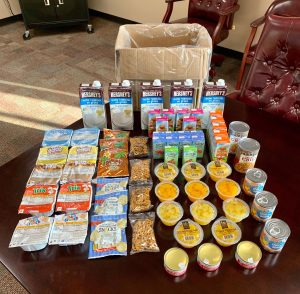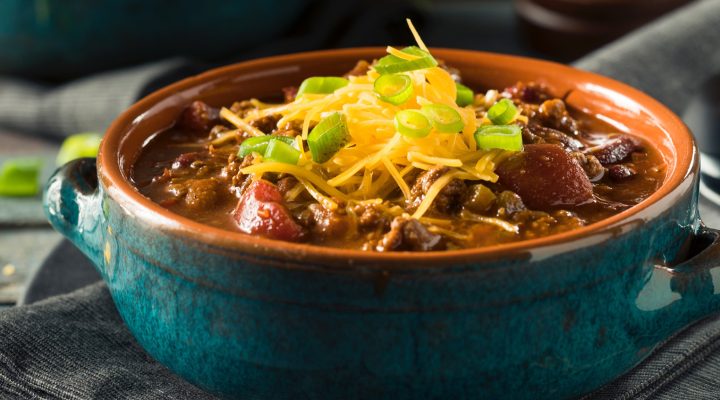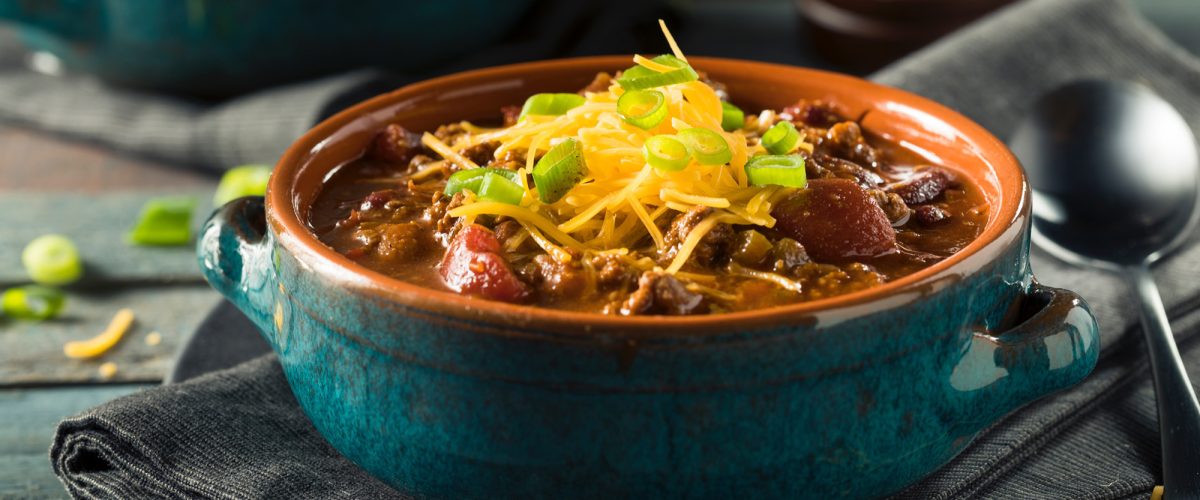The Baylor Collaborative on Hunger and Poverty has received nearly $5 million from the U.S. Department of Agriculture to maintain a summer program that delivers nutritious meals to at-risk children residing in rural communities in four U.S. states.
The federal funds helped extend Meals-To-You, a demonstration project in Alaska, New Mexico, Texas and Utah that is led by the collaborative in partnership with USDA, the PepsiCo Foundation and McLane Global.
“In the wealthiest country in the world, it is shameful that millions of children struggle with hunger every day,” Executive Director Jeremy Everett said in a Baylor University announcement. “In the summer months, rural communities face even more challenges accessing a summer meal site. We’ve seen during the pandemic that innovative programs like Meals-to-You work.”
 In urban and other more populated areas, summer meal sites such as schools, community centers and food stores offer easier access to the USDA-funded Summer Food Service Program, which provides food to children who receive free or reduced-price school meals throughout the rest of the year.
In urban and other more populated areas, summer meal sites such as schools, community centers and food stores offer easier access to the USDA-funded Summer Food Service Program, which provides food to children who receive free or reduced-price school meals throughout the rest of the year.
But in rural areas, distance and transportation challenges deny many children access to those locations. “Without access to school meals, households with children have higher rates of food insecurity during the summer,” the Baylor release noted. “Meals-to-You helps alleviate these challenges by shipping nutritious, shelf-stable food directly to the homes of rural families with children.”
Each weekly delivery includes a box of five breakfasts, five lunches/dinners, and five snacks prepared according to USDA child nutrition guidelines. The Baylor collaborative works with local school districts to enroll children in the program.
Meals-To-You began in 2019 as a three-year test program in East and West Texas to determine the feasibility and sustainability of meal delivery systems in remote locations.
The collaborative has demonstrated that the initiative can be scaled up to meet increased demand, the Baylor release said. “During the pandemic, the USDA issued emergency resources to scale MTY across the country, eventually serving over 3 million meals weekly.”
In 2020, the surge resulted in nearly 40 million meals being sent to more than 273,000 children in 43 states and Puerto Rico when schools were closed due to COVID-19. “By late summer 2020, households that participated in Meals-to-You were 19.7% less likely to be food insecure on average than a household that did not participate. The likelihood of food insecurity decreased even more for Alaska Native households that participated.”
The Urban Institute, which evaluated the first three years of the project, said the food deliveries were a huge help to participating families,
The Urban Institute, which evaluated the first three years of the project, said the food deliveries were a huge help to participating families, especially during 2020 when 83% reported experiencing economic hardships due to COVID-19.
“Interviewees expressed gratitude for the program, especially given their pandemic-related hardship. Many were not able to work, lost their jobs, or experienced layoffs, and even participants who were working were facing limited hours, small businesses not attracting enough customers, and unsteady income. Parents described additional stress in paying for food and other household expenses. Several had family members experience illness or other health conditions,” the institute reported.
A mother in Alaska told the organization the food packages were critically important to feeding her son in the family’s extremely remote community.
“We live in a place where food is only accessible by air, so I have to pay somebody to go and get my food. It’s like 15% to 20% of my total bill … and like 90 cents per pound to get it shipped to me. So, when the school’s going, the kids get lunches, and that is super helpful. But when school closed down, all that went away. And I didn’t have stuff on hand. … So, it’s actually super handy to have that stuff start coming straight away and just have meals available for him.”

Matt Smith
Matt Smith, senior director of strategy and operations for the PepsiCo Foundation, praised the continuation of the program for a fourth year.
“We’re thrilled USDA renewed its investment in Meals-to-You, which has proved to be a critical strategy in the fight to solve child hunger,” he said. “We’re proud to collaborate with federal agencies, food distribution companies, researchers and local school administrators to continue making a direct and positive impact on the lives of the families in the communities where we live and work.”

Denton McLane
McLane Global Chairman Denton McLane said the company’s participation in Meals-to-You has been gratifying. “Hunger is a complex problem in our country which needs innovative solutions from a diverse set of partners. We are pleased to bring our world-class food procurement and logistics skills to the table to feed kids nutritious food this summer.”
The collaborative said the group and its partners are looking to make Meals-to-You even more effective. “Organizations working to create more just and equitable food systems, like our team at the Baylor Collaborative on Hunger and Poverty, are exploring innovative and sustainable programs to solve these challenges.”
Related articles:
New endowed academic chair will lead Baylor in research to end hunger
Baylor initiative feeds 270,483 children in 43 states amid a global pandemic
Baylor preparing to launch master’s degree in theology, ecology and food justice


